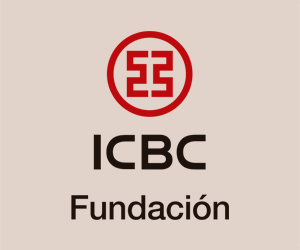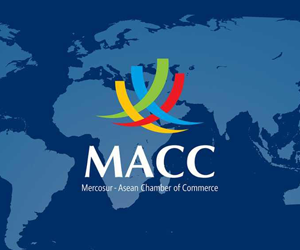Cumbre BRIC
A pesar de las muestras de pesimismo recogidas entre la prensa y el empresariado brasileño, en relación con lo que se consideró una reunión de poco alcance estratégico, la Cumbre de los BRIC de Ekaterimburgo, produjo cierto margen de expectativa, en el ámbito de la comunidad internacional.
Por lo menos en lo que se refiere a la pronta recuperación de estas economías en el escenario de la actual crisis mundial, que reflejaría una vitalidad inusitada de un grupo que incluye al 40% de la población del planeta.
Los grandes países emergentes, más precisamente los Brics (Brasil, Rusia, India y China), ya muestran señales de recuperación económica, en tanto los países ricos permanecen en recesión, expresa la revista británica The Economist, en relación con la reunión celebrada en la ciudad rusa de Ekaterimburgo. La cúpula reflejó ‘la creciente autoconfianza de estos países”, y podría traducirse en una recuperación de “los mayores mercados emergentes’, dejando el escenario de recesión para un Occidente que va perdiendo poder económico, explica la publicación.
China e India tuvieron un desempeño económico mejor que el esperado en el primer trimestre, mientras que en Brasil, a pesar del parate del período, presenta una media de crecimiento mayor que el del resto de América Latina, y la mayor parte de los analistas espera una recuperación a los niveles precrisis para el año próximo, resalta The Economist.
Lo cierto es que en gira por Kazajstán, Lula da Silva abundó sobre importantes temas abordados en la reunión, directamente relacionados con el camino hacia un sistema monetario más estable. Se refirió tanto a la reforma del Fondo Monetario Internacinal, como al Banco Mundial, a las que reclamó mayor democratización.
Resaltó ante la prensa internacional, que se llegó a analizar la celebración de reuniones coordinadas de los Bancos Centrales de los cuatro emergentes mayores, para tratar temas tales como la adopción de monedas locales en el comercio bilateral, tal como lo está implementando con Argentina. No se llegó a profundizar sobre el eventual uso de una moneda común distinta al dólar o una cesta de monedas como activo de reserva, que también está en agenda.
"Casi 60% de todo el crecimiento económico mundial entre 2000 y 2008 ocurrió en países en desarrollo; y la mitad sólo en el grupo Bric", afirma The Economist. En cuanto al despegue del grupo, que ocupa el 25% del territorio habitable mundial y comprende el 15% de la economía del planeta, podría deberse en gran parte a su enorme extensión y mercado interno, que hace que su recuperación no dependa de saldos exportables, como puede pasar con otros países en desarrollo.
Si bien es cierto que existen diferencias que incluyen aspectos como el poder económico, en el grupo BRIC, la reunión fue muy bien aprovechada por Brasil, el socio menor, que se encontró formando parte del fenómeno de los grandes países emergentes que escaparon a la crisis.
Desde este punto de vista, pierde peso el argumento de que el comunicado final del encuentro ofreció pocas coincidencias concretas, para ganar espacio la hipótesis del surgimiento de nuevos interlocutores a la hora de disenar el sistema económico y financiero mundial.
El documento cuatripartito defiende “un sistema monetario internacional estable, previsible y más diversificado”. Incluye el apoyo a India y Brasil sobre sus aspiraciones de ocupar un asiento en el Consejo de Seguridad de Naciones Unidas, del cual Rusia y China son miembros permanentes. La diversificación de fuentes de energía y la seguridad alimentaria contaron con un importante espacio, en el que primó la postura de bregar por la conclusión de la Ronda de Doha, y el apoyo a las economías más débiles en esta coyuntura.
Anexo
Joint Statement of the BRIC Countries’ Leaders
fuente: sitio oficial presidencia Rusia
We, the leaders of the Federative Republic of Brazil, the Russian Federation, the Republic of India and the People’s Republic of China, have discussed the current situation in global economy and other pressing issues of global development, and also prospects for further strengthening collaboration within the BRIC, at our meeting in Yekaterinburg on June 16, 2009.
We have arrived at the following conclusions:
1. We stress the central role played by the G20 Summits in dealing with the financial crisis. They have fostered cooperation, policy coordination and political dialogue regarding international economic and financial matters.
2. We call upon all states and relevant international bodies to act vigorously to implement the decisions adopted at the G20 Summit in London on April 2, 2009. We shall cooperate closely among ourselves and with other partners to ensure further progress of collective action at the next G20 Summit to be held in Pittsburgh in September 2009. We look forward to a successful outcome of the United Nations Conference on the World Financial and Economic Crisis and its Impact on Development to be held in New York on June 24-26, 2009.
3. We are committed to advance the reform of international finаncial institutions, so as to reflect changes in the global economy. The emerging and developing economies must have greater voice and representation in international financial institutions, whose heads and executives should be appointed through an open, transparent, and merit-based selection process. We also believe that there is a strong need for a stable, predictable and more diversified international monetary system.
4. We are convinced that a reformed financial and economic architecture should be based, inter alia, on the following principles:
-democratic and transparent decision-making and implementation process at the international financial organisations;
- solid legal basis;
-compatibility of activities of effective national regulatory institutions and international standard-setting bodies;
-strengthening of risk management and supervisory practices.
5. We recognise the important role played by international trade and foreign direct investments in the world economic recovery. We call upon all parties to work together to improve the international trade and investment environment. We urge the international community to keep the multilateral trading system stable, curb trade protectionism, and push for comprehensive and balanced results of the WTO’s Doha Development Agenda.
6. The poorest countries have been hit hardest by the financial crisis. The international community needs to step up efforts to provide liquid financial resources for these countries. The international community should also strive to minimise the impact of the crisis on development and ensure the achievement of the Millennium Development Goals. Developed countries should fulfil their commitment of 0.7% of Gross National Income for the Official Development Assistance and make further efforts in increasing assistance, debt relief, market access and technology transfer for developing countries.
7.The implementation of the concept of sustainable development, comprising, inter alia, the Rio Declaration, Agenda for the 21st Century and multilateral environmental agreements, should be a major vector in the change of paradigm of economic development.
8.We stand for strengthening coordination and cooperation among states in the energy field, including amongst energy producers and consumers and transit states, in an effort to decrease uncertainty and ensure stability and sustainability. We support diversification of energy resources and supply, including renewable energy, security of energy transit routes and creation of new energy investments and infrastructure.
9.We support international cooperation in the field of energy efficiency. We stand ready for a constructive dialogue on how to deal with climate change based on the principle of common but differentiated responsibility, given the need to combine measures to protect the climate with steps to fulfill our socio-economic development tasks.
10. We reaffirm to enhance cooperation among our countries in socially vital areas and to strengthen the efforts for the provision of international humanitarian assistance and for the reduction of natural disaster risks. We take note of the statement on global food security issued today as a major contribution of the BRIC countries to the multilateral efforts to set up the sustainable conditions for this goal.
11. We reaffirm to advance cooperation among our countries in science and education with the aim, inter alia, to engage in fundamental research and development of advanced technologies.
12. We underline our support for a more democratic and just multi-polar world order based on the rule of international law, equality, mutual respect, cooperation, coordinated action and collective decision-making of all states. We reiterate our support for political and diplomatic efforts to peacefully resolve disputes in international relations.
13. We strongly condemn terrorism in all its forms and manifestations and reiterate that there can be no justification for any act of terrorism anywhere or for whatever reasons. We note that the draft Comprehensive Convention against International Terrorism is currently under the consideration of the UN General Assembly and call for its urgent adoption.
14. We express our strong commitment to multilateral diplomacy with the United Nations playing the central role in dealing with global challenges and threats. In this respect, we reaffirm the need for a comprehensive reform of the UN with a view to making it more efficient so that it can deal with today’s global challenges more effectively. We reiterate the importance we attach to the status of India and Brazil in international affairs, and understand and support their aspirations to play a greater role in the United Nations.
15. We have agreed upon steps to promote dialogue and cooperation among our countries in an incremental, proactive, pragmatic, open and transparent way. The dialogue and cooperation of the BRIC countries is conducive not only to serving common interests of emerging market economies and developing countries, but also to building a harmonious world of lasting peace and common prosperity.
16. Russia, India and China welcome the kind invitation of Brazil to the next BRIC summit it will host in 2010.
Los grandes países emergentes, más precisamente los Brics (Brasil, Rusia, India y China), ya muestran señales de recuperación económica, en tanto los países ricos permanecen en recesión, expresa la revista británica The Economist, en relación con la reunión celebrada en la ciudad rusa de Ekaterimburgo. La cúpula reflejó ‘la creciente autoconfianza de estos países”, y podría traducirse en una recuperación de “los mayores mercados emergentes’, dejando el escenario de recesión para un Occidente que va perdiendo poder económico, explica la publicación.
China e India tuvieron un desempeño económico mejor que el esperado en el primer trimestre, mientras que en Brasil, a pesar del parate del período, presenta una media de crecimiento mayor que el del resto de América Latina, y la mayor parte de los analistas espera una recuperación a los niveles precrisis para el año próximo, resalta The Economist.
Lo cierto es que en gira por Kazajstán, Lula da Silva abundó sobre importantes temas abordados en la reunión, directamente relacionados con el camino hacia un sistema monetario más estable. Se refirió tanto a la reforma del Fondo Monetario Internacinal, como al Banco Mundial, a las que reclamó mayor democratización.
Resaltó ante la prensa internacional, que se llegó a analizar la celebración de reuniones coordinadas de los Bancos Centrales de los cuatro emergentes mayores, para tratar temas tales como la adopción de monedas locales en el comercio bilateral, tal como lo está implementando con Argentina. No se llegó a profundizar sobre el eventual uso de una moneda común distinta al dólar o una cesta de monedas como activo de reserva, que también está en agenda.
"Casi 60% de todo el crecimiento económico mundial entre 2000 y 2008 ocurrió en países en desarrollo; y la mitad sólo en el grupo Bric", afirma The Economist. En cuanto al despegue del grupo, que ocupa el 25% del territorio habitable mundial y comprende el 15% de la economía del planeta, podría deberse en gran parte a su enorme extensión y mercado interno, que hace que su recuperación no dependa de saldos exportables, como puede pasar con otros países en desarrollo.
Si bien es cierto que existen diferencias que incluyen aspectos como el poder económico, en el grupo BRIC, la reunión fue muy bien aprovechada por Brasil, el socio menor, que se encontró formando parte del fenómeno de los grandes países emergentes que escaparon a la crisis.
Desde este punto de vista, pierde peso el argumento de que el comunicado final del encuentro ofreció pocas coincidencias concretas, para ganar espacio la hipótesis del surgimiento de nuevos interlocutores a la hora de disenar el sistema económico y financiero mundial.
El documento cuatripartito defiende “un sistema monetario internacional estable, previsible y más diversificado”. Incluye el apoyo a India y Brasil sobre sus aspiraciones de ocupar un asiento en el Consejo de Seguridad de Naciones Unidas, del cual Rusia y China son miembros permanentes. La diversificación de fuentes de energía y la seguridad alimentaria contaron con un importante espacio, en el que primó la postura de bregar por la conclusión de la Ronda de Doha, y el apoyo a las economías más débiles en esta coyuntura.
Anexo
Joint Statement of the BRIC Countries’ Leaders
fuente: sitio oficial presidencia Rusia
We, the leaders of the Federative Republic of Brazil, the Russian Federation, the Republic of India and the People’s Republic of China, have discussed the current situation in global economy and other pressing issues of global development, and also prospects for further strengthening collaboration within the BRIC, at our meeting in Yekaterinburg on June 16, 2009.
We have arrived at the following conclusions:
1. We stress the central role played by the G20 Summits in dealing with the financial crisis. They have fostered cooperation, policy coordination and political dialogue regarding international economic and financial matters.
2. We call upon all states and relevant international bodies to act vigorously to implement the decisions adopted at the G20 Summit in London on April 2, 2009. We shall cooperate closely among ourselves and with other partners to ensure further progress of collective action at the next G20 Summit to be held in Pittsburgh in September 2009. We look forward to a successful outcome of the United Nations Conference on the World Financial and Economic Crisis and its Impact on Development to be held in New York on June 24-26, 2009.
3. We are committed to advance the reform of international finаncial institutions, so as to reflect changes in the global economy. The emerging and developing economies must have greater voice and representation in international financial institutions, whose heads and executives should be appointed through an open, transparent, and merit-based selection process. We also believe that there is a strong need for a stable, predictable and more diversified international monetary system.
4. We are convinced that a reformed financial and economic architecture should be based, inter alia, on the following principles:
-democratic and transparent decision-making and implementation process at the international financial organisations;
- solid legal basis;
-compatibility of activities of effective national regulatory institutions and international standard-setting bodies;
-strengthening of risk management and supervisory practices.
5. We recognise the important role played by international trade and foreign direct investments in the world economic recovery. We call upon all parties to work together to improve the international trade and investment environment. We urge the international community to keep the multilateral trading system stable, curb trade protectionism, and push for comprehensive and balanced results of the WTO’s Doha Development Agenda.
6. The poorest countries have been hit hardest by the financial crisis. The international community needs to step up efforts to provide liquid financial resources for these countries. The international community should also strive to minimise the impact of the crisis on development and ensure the achievement of the Millennium Development Goals. Developed countries should fulfil their commitment of 0.7% of Gross National Income for the Official Development Assistance and make further efforts in increasing assistance, debt relief, market access and technology transfer for developing countries.
7.The implementation of the concept of sustainable development, comprising, inter alia, the Rio Declaration, Agenda for the 21st Century and multilateral environmental agreements, should be a major vector in the change of paradigm of economic development.
8.We stand for strengthening coordination and cooperation among states in the energy field, including amongst energy producers and consumers and transit states, in an effort to decrease uncertainty and ensure stability and sustainability. We support diversification of energy resources and supply, including renewable energy, security of energy transit routes and creation of new energy investments and infrastructure.
9.We support international cooperation in the field of energy efficiency. We stand ready for a constructive dialogue on how to deal with climate change based on the principle of common but differentiated responsibility, given the need to combine measures to protect the climate with steps to fulfill our socio-economic development tasks.
10. We reaffirm to enhance cooperation among our countries in socially vital areas and to strengthen the efforts for the provision of international humanitarian assistance and for the reduction of natural disaster risks. We take note of the statement on global food security issued today as a major contribution of the BRIC countries to the multilateral efforts to set up the sustainable conditions for this goal.
11. We reaffirm to advance cooperation among our countries in science and education with the aim, inter alia, to engage in fundamental research and development of advanced technologies.
12. We underline our support for a more democratic and just multi-polar world order based on the rule of international law, equality, mutual respect, cooperation, coordinated action and collective decision-making of all states. We reiterate our support for political and diplomatic efforts to peacefully resolve disputes in international relations.
13. We strongly condemn terrorism in all its forms and manifestations and reiterate that there can be no justification for any act of terrorism anywhere or for whatever reasons. We note that the draft Comprehensive Convention against International Terrorism is currently under the consideration of the UN General Assembly and call for its urgent adoption.
14. We express our strong commitment to multilateral diplomacy with the United Nations playing the central role in dealing with global challenges and threats. In this respect, we reaffirm the need for a comprehensive reform of the UN with a view to making it more efficient so that it can deal with today’s global challenges more effectively. We reiterate the importance we attach to the status of India and Brazil in international affairs, and understand and support their aspirations to play a greater role in the United Nations.
15. We have agreed upon steps to promote dialogue and cooperation among our countries in an incremental, proactive, pragmatic, open and transparent way. The dialogue and cooperation of the BRIC countries is conducive not only to serving common interests of emerging market economies and developing countries, but also to building a harmonious world of lasting peace and common prosperity.
16. Russia, India and China welcome the kind invitation of Brazil to the next BRIC summit it will host in 2010.
Graciela Baquero





